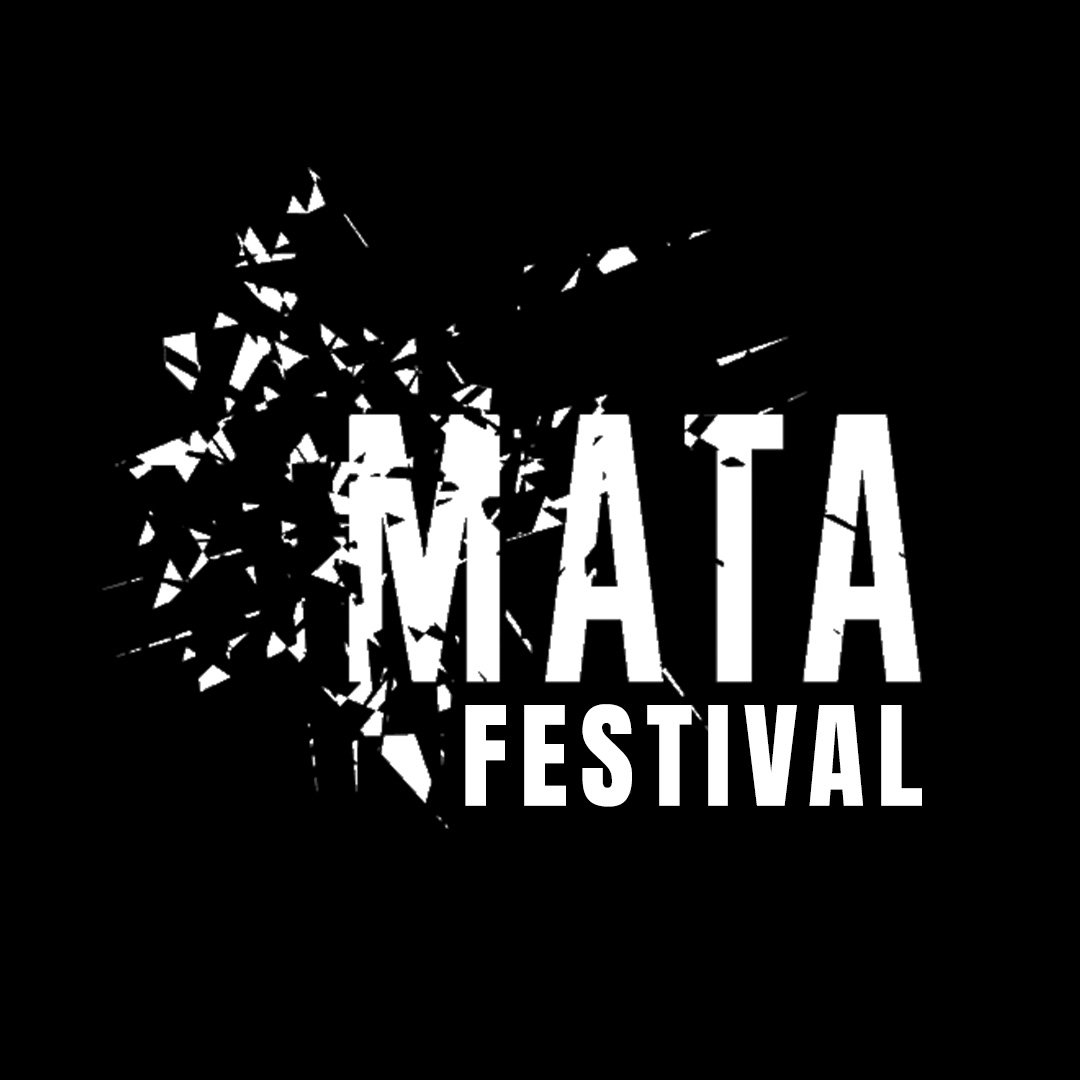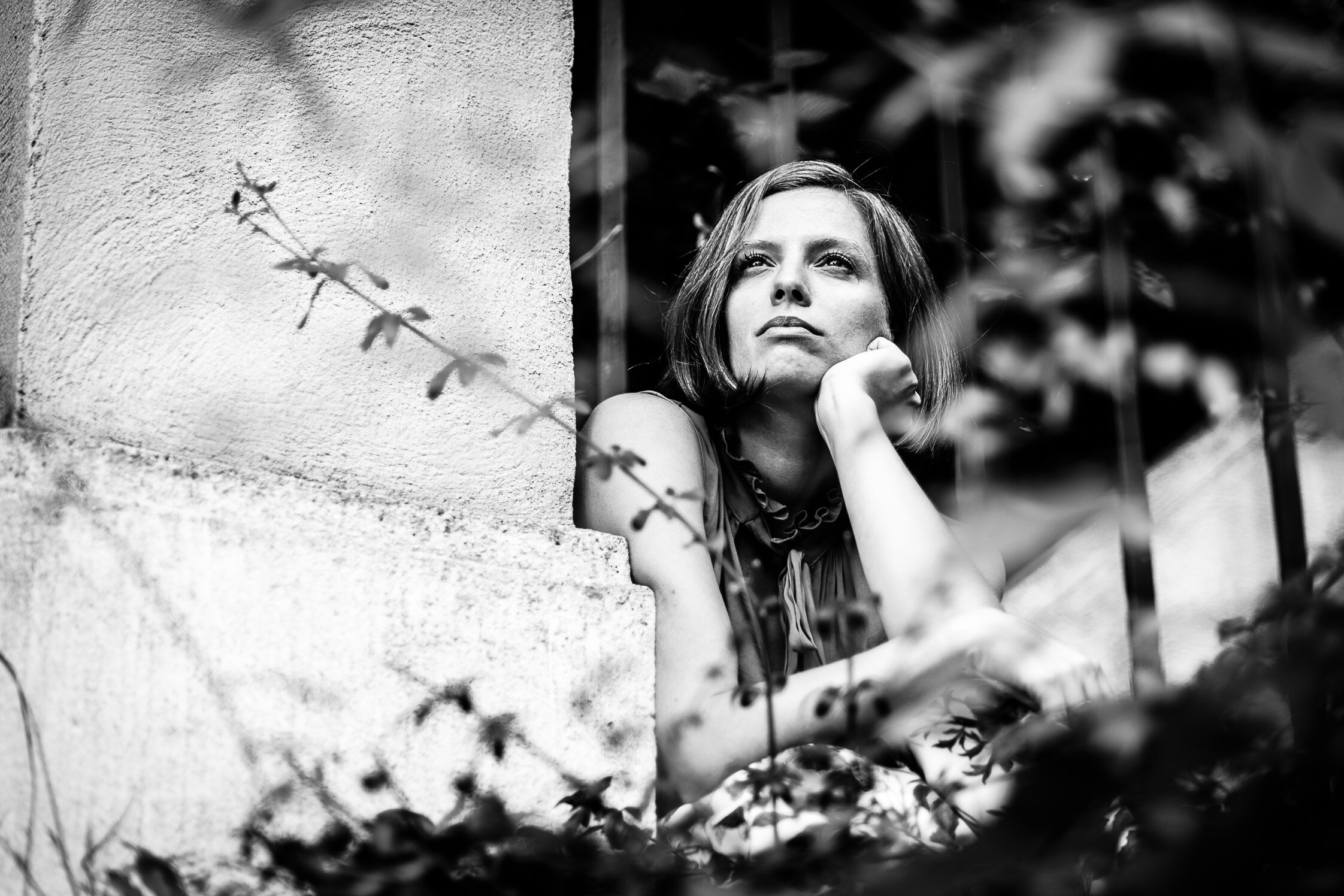Fenster
Meaghan Burke
I wrote Fenster (for Marina and Leah/two violinists with open windows) for Marina Kifferstein and Leah Asher in May 2020, while Brooklyn was still under full COVID-19 lockdown. This piece was part of a series of “Care Pieces,” brief text scores in the tradition of Pauline Oliveros’ Sonic Meditations and Yoko Ono’s instruction pieces which I began writing in April 2020. These pieces were hand-copied and sent to friends via snail-mail, along with letters and memorabilia, and written in a spirit of empathy and care, imagining each friend’s particular physical and emotional space, and what might help them to feel a little bit better.
Fenster was unique among these pieces in that it incorporates more traditionally “musical” material and can be “performed” in a somewhat more traditional sense; however, the piece has not yet been performed, and would no longer be possible in its original form as Brooklyn’s sonic landscape has returned to its usual loudness and one of the performers has moved to a new apartment building without a street-facing window. With that in mind, we plan to adapt this piece to be performed in two tunnels in Prospect Park (the newly renovated Endale Arch and Meadowport Arch). Each violinist will be situated in one of these tunnels, and audience will be invited to stroll between the two locations (approximately ¼ mile apart), seeking out their own “mix” of the two musicians, instruments, acoustic spaces, and the many surrounding sounds. They may also choose to focus on one musician for a time, then travel towards the other. The piece is approximately 20 minutes long (based on the time it took to walk between the two performers’ buildings).
As indicated in the original score, the performance will also be recorded “by two other friends,” in this case sound artist/engineer Bernd Klug and myself. We plan to experiment with different approaches beforehand, which will likely include an ambisonic (360) recording of the “sweet spot” between the two tunnels, and a very slow walk between the two tunnels (lasting the duration of the piece) resulting in a sort of analog crossfade in both directions. The recordings of the performance will be mixed together to create a new iteration of the piece, which could be released as part of MATA’s digital programming.
Meaghan’s Artist Statement
My work as a performer-composer navigates terrains between songwriting, contemporary Western classical music, and improvisation, exploring relationships between sound, storytelling, and the body. As both composer and performer, I am interested in music which gives creative agency to both performers and listeners, whether through improvisation, open notation, or collective composition. I explore these ideas of agency, storytelling, and corporeality in my current large-scale project, a music-theater piece called “The Wandering Womb” which I’m developing in collaboration with theater-maker Sara Katzoff. This work uses the primitive gynecological/psychological concept of hysteria as a vehicle for telling some of the many unsung stories surrounding the uterus.
Incorporating elements of song, storytelling, sound art, improvisation, and composition, the piece reclaims the space of the wanderer while critiquing the privatization of care, creating an alternate mythology where the womb-haver is free to ramble through time and space, borne by their own joy, pain, labor, and loss. As an improviser, I am profoundly influenced by the creative artistry of AACM artists such as Muhal Richard Abrams and Roscoe Mitchell, and by Pauline Oliveros’ Deep Listening. My work as a member of the Muhal Richard Abrams Trio, in particular, was instrumental both to my craft as an improviser and my approach to teaching creative music practices.
Looking forward, I am keenly interested in how music can embody a “love ethic” (as defined by bell hooks in her seminal book, All About Love: New Visions), and how we can find more space for care in musical relationships: not as something adjacent to music, but as an essential part of it. With this in mind, I began writing a series of “Care Pieces,” brief text scores in the tradition of Oliveros’ Sonic Meditations and Yoko Ono’s instruction pieces. These pieces are hand-copied and sent to friends via snail-mail, along with letters and memorabilia. Writing these pieces is an exercise in empathy: for each “performer,” I must imagine where they are, what they hear, and what they might need to feel just a little bit better. What would happen if every composer asked these questions of their performers? If every performer asked these questions of their audience? How can we write music for community instead of ego?
Artist Bios
Meaghan Burke
Hailed as “outstanding,” with a “street-smart, feline voice” (The New York Times), Meaghan Burke is a cellist, vocalist, and composer working in the space between contemporary music, improvised music, and songwriting. Meaghan is a founding member of The Rhythm Method, a contemporary, feminist, “trailblazing” quartet of “skillful composer-performers” (The New Yorker) praised for its “stunning displays of fearsome extended technique and fearless programming.” (New York Music Daily) She’s also the lead singer and cellist of avant-grunge band Forever House, whose debut album, Eaves was released on Infrequent Seams in November 2018.
Her most recent album with The Rhythm Method string quartet, “A Few Concerns” (Gold Bolus Recordings) has been described as “a smart, feisty album that is both provocative and a pleasure to listen to...a culminating work...not to be missed.” (I Care If You Listen) Meaghan has released two additional albums of her songs: the lush chamber folk of “Creature Comforts” in 2017, and her stripped-down debut “Other People’s Ghosts” in 2010.
Recent performance highlights have included: debuting the role of Valerie Ann Price, an academic-turned-would-be-killer in Alex Temple’s “brilliantly zany” time travel monodrama Three Principles of Noir at Carnegie Hall with the American Composers Orchestra; presenting the inaugural program of The Rhythm Method’s “Hidden Mothers Project,” an initiative to shed new light on little-known works by historical women composers; and performing as part of the Muhal Richard Abrams Trio with the late, great pianist-composer himself. Meaghan has been commissioned by the Austrian Cultural Forum NYC, Chartreuse string trio, and the Byrne:Kozar Duo, and she continues to write regularly for The Rhythm Method. Meaghan is also an avid writer and translator; her translation of the Collected Writings of Peter Ablinger will be published by MusikTexte next year. For more info, visit: www.meaghanburkemusic.com
Marina Kifferstein, violin
Marina Kifferstein is a violinist and generative artist based in NYC. Equally comfortable in major international venues and DIY spaces, she enjoys a diverse career that encompasses contemporary chamber music, improvisation, classical performance, and more. She is a founding member of TAK ensemble and The Rhythm Method string quartet, a member of the Lucerne Festival Contemporary Orchestra, and is a regular guest with the International Contemporary Ensemble, Wet Ink, and Talea. She is on faculty at the United Nations International School, and is currently pursuing a doctorate at the CUNY Graduate Center. For more information, visit www.marinakifferstein.com.
Leah Asher, violin
Violinist/violist, composer, and visual artist Leah Asher is an avid performer of contemporary music and creator of new artistic works. Leah is a member of The Rhythm Method string quartet, the violin-piano duo Aether Eos, and co-creator of the series ‘Meaningless Work’ with Nicolee Kuester. She has been featured as a concerto soloist with NOSO Sinfoniettaen and Oberlin’s Contemporary Music Ensemble. Leah formerly served as solo violist of NOSO Sinfoniettaen and co-principal viola of the Arctic Philharmonic. She regularly performs with other New York-based ensembles such as International Contemporary Ensemble, Talea ensemble, and Shattered Glass. www.leahasher.com
Bernd Klug, recording concept, recording and mixing
Bernd Klug is an Austrian-born, Brooklyn-based sound artist, audio engineer and double bassist. In installations and concerts, his music encounters our everyday circumstances as found forms and questions our perceptions of sound and social space. Bernd has had solo exhibitions at Harvestworks, Monmouth University, and the ACFNY. HIs compositions include ‘sides – systems under test’, ‘string quartet and skyscraper 2.0’, and his bass solo CD ‘Cold Commodities’ (Innova). Since 2016, Bernd has worked as a sound engineer and system designer with Jim Toth’s Jupiter Sound at venues such as the Guggenheim Museum, MoMA, and MoMA-PS1, and has built sound systems for Brooklyn Museum, Knockdown Center, and concerts by Solange Knowles and Tierra Whack. He holds an MFA from Bard College and a BA in bass performance/education from the Vienna University for Music. www.klug.klingt.org




